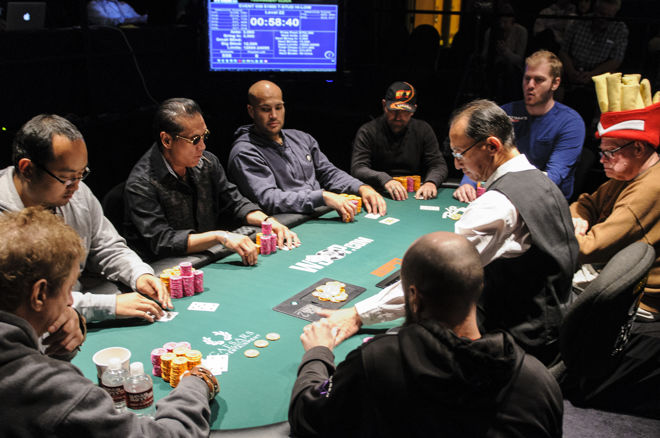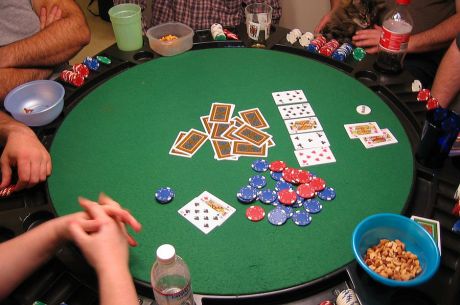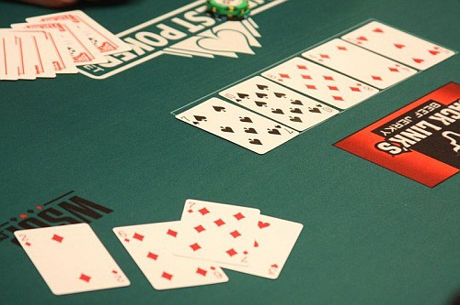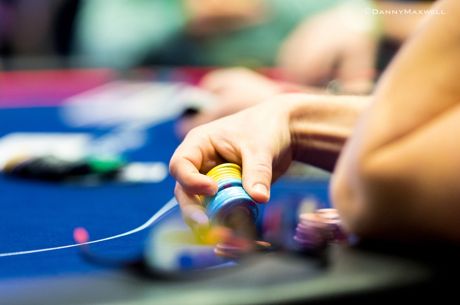Two Strategies For Playing Against Strong, Tricky Opponents

When I give strategy advice to players of home games, many times I'm offering tips for playing against average or even mediocre players — that is, the kinds of players who often frequent home games. You are usually going to be better than these players, and you can exploit their weaknesses and win their money.
Sometimes, however, especially if you are playing in a casino in the higher-limit games, you will find yourself up against a highly-skilled opponent. I've noticed this is especially the case when playing in side games during large poker tournaments — that is, games where good players frequently land to eat up all the fish. Even in certain home games you might occasionally encounter such a tough opponent whose skill set clearly exceeds your own.
What adjustments can you make in your game to deal with players who are much, much better than your run-of-the-mill opponents?
First of all, realize that if a game is filled with players like these, you might be best to leave the game. There's no prize for playing against the toughest opponents. Unlike golf, there's no adjustment being made because you have a higher "handicap" than the other players at the table. So if you think you are overmatched, there's no shame in moving to an easier game.
Even so, from time to time, especially if you play in many different places with many different players, you will find yourself dealing with an excellent player who is hard to figure out — the kind of player you're striving to be, if you aren't there already.
Here are a couple of things you can do to minimize your losses against a player who has your head spinning. My examples are from seven-card stud, but speak to ideas applicable to other games as well.
Avoid confrontations without premium hands
Let's say, in a $20/$40 stud game, you are dealt (7♥Q♥) Q♠. A few players have folded and you have two players to act after you, including one with a king showing. You figure you might win the antes and the bring-in by raising, or you might get a player to tag along with a weaker hand, so you complete the bet to $20.
The player with the king, whom you have deduced is a strong tricky player, then reraises to $40. The other two players fold. What do you do?
On the one hand, you are tempted to call. He's tricky, so you figure he may well be doing this with just that lone king. Most of the time, in fact, that's exactly what he's likely to have. Some of the time he might have a pair in the hole. And somewhat more frequently than that, he's going to have the pair of kings that he's representing.
That means you probably are going to be in the lead, and even if he does have a king, you might hit another queen or a seven to take the lead. So you're tempted to call. Similarly, since he is so likely to be raising you without a pair of kings, you're tempted to raise. In fact, raising might make sense if you were sure he didn't have the kings, or maybe if you had an ace to go with your queens.
But all things considered, the best move in this type of situation is almost surely to fold.
True, you're letting him take advantage of you with that raise. You're backing down after showing strength, conceding to a move that he might just be putting on you to get you to put your tail between your legs and run off like a little child.
But on the other hand, you have already conceded to yourself that he's a tricky opponent you can't figure out. As the hand progresses, It's likely to only going get tougher to figure out what he has. How confident will you be that you are ahead later in the hand, even if you do catch something else? Do you really want to commit the full $180 it will take to call him all of the way down to the river (assuming neither of you show obvious improvement)? I don't recommend it — not if you already have assessed him as a strong, savvy player. Pick on the easier opponents. Let him buy his pot, if that's what he is in fact doing. Fold and move on.
Employ "anti-spin"
Here's another tactic for playing against tricky, hard-to-figure-out opponents. I call it using "anti-spin."
Anti-spin is a term from another sport — ping pong, or, as serious practitioners call it, table tennis. Back in the 1970s, top level table tennis players started to use a very "sticky" rubber on their paddles that could impart a very strong spin to the ball. This changed the game significantly from the days of pimpled and sandpaper paddles that imparted only a little spin. Manufacturers responded with a type of rubber, designed for defense, called "anti-spin." It didn't impart any spin of its own and tended to absorb the spin of an opponent's ball. In so doing it tended to neutralize some of the advantage that the "sticky" rubber gave to their opponents.
In poker, against tricky opponents, I suggest you sometimes play in a way that mimics that anti-spin. Buffer your opponents' trickiness by playing neutrally against them, tending to call and check more than you might against players over whom you hold an advantage.
Against a regular (or poor) opponent, you might tend to be particularly aggressive, even in the face of your opponent's aggression. If, for example, you had (J♠J♦) K♣, and such an opponent raised with a queen showing, you might reraise to put pressure on him. But against your tricky, strong opponent, you might be better of responding neutrally by only calling.
Similarly, even with a super strong hand, you'd play back neutrally against a tricky foe. For instance, with (A♠A♣) 9♦ if the bet came to you in a typical game against typical opponents, you would probably raise. But up against a strong opponent you might just call, allowing him to act aggressively. Say he had a queen up and raised — you might just call, not exposing your strength and letting him lead. Let him push you around for now while you react neutrally. By surprising the tricky player later with hidden strength, you may have him play less aggressively against you in the future.
Conclusion
To some extent, it surely is frustrating and deflating to recognize an opponent is better than you, and then either to avoid mixing it up against that player or try to play neutrally against him or her.
But in poker, your edge comes not just from winning the most when you are in the lead, but from losing the least when you are not — a truth that applies not just to the cards, but to the players as well.
Ashley Adams has been playing poker for 50 years and writing about it since 2000. He is the author of hundreds of articles and two books, Winning 7-Card Stud (Kensington 2003) and Winning No-Limit Hold'em (Lighthouse 2012). He is also the host of poker radio show House of Cards. See www.houseofcardsradio.com for broadcast times, stations, and podcasts.
Want to stay atop all the latest in the poker world? If so, make sure to get PokerNews updates on your social media outlets. Follow us on Twitter and find us on both Facebook and Google+!









